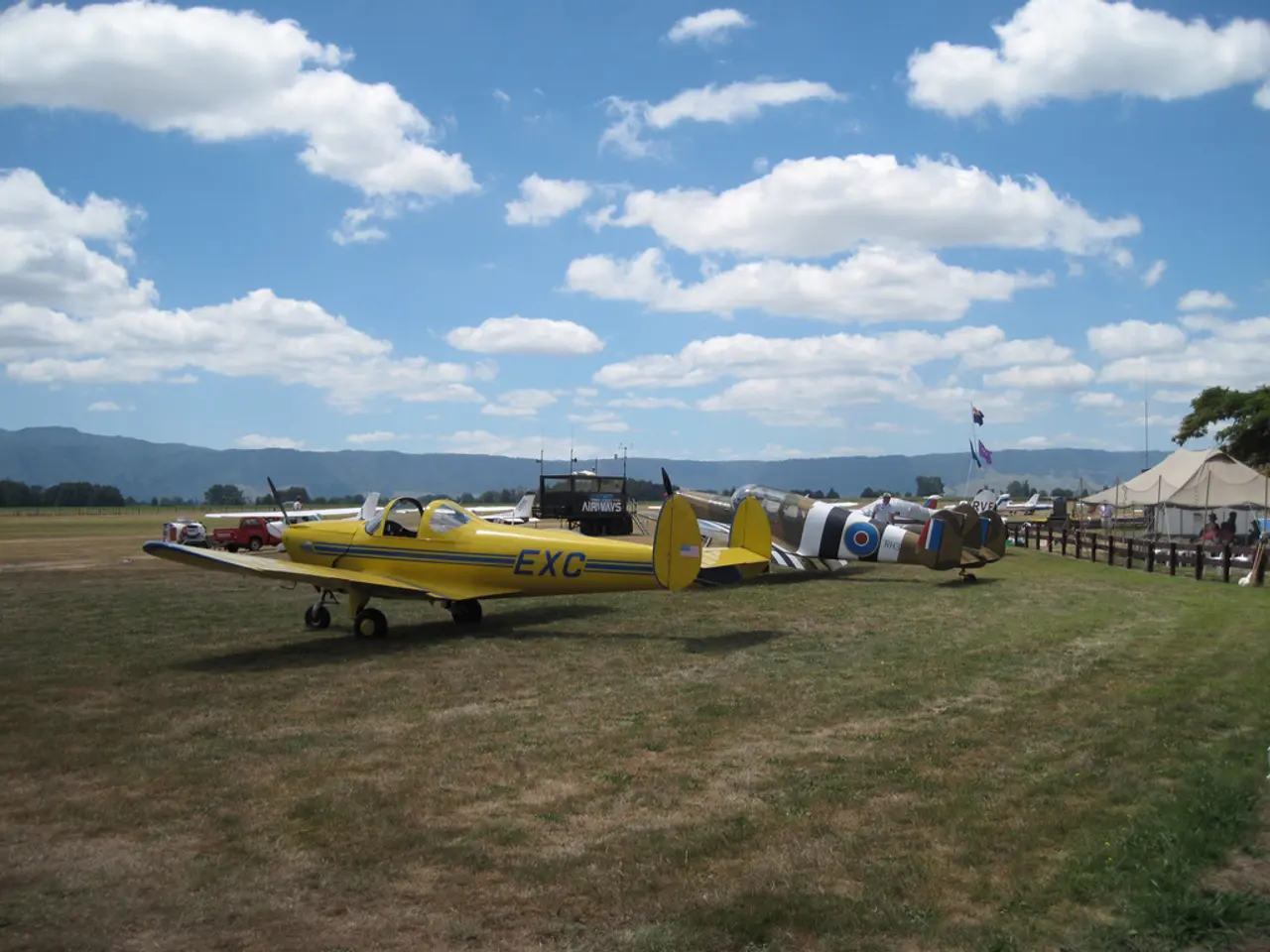Laboratory receives an aerial blood specimen
Drone Delivery of Lab Samples in Zollernalb District: A Failed Attempt for Now
The Zollernalb district in southwestern Germany has seen an attempt to utilise drones in healthcare, specifically for the transport of laboratory samples, but the project has yet to take flight. This is not the first endeavour in the region to explore the potential of drones in healthcare.
In 2021, the regional hospital association RKH Gesundheit, alongside the Helios group and drone manufacturer German Copters, began preparations for drone operations. The project, involving a drone named Labfly, was intended to streamline the transportation of lab samples, particularly untested blood samples, which are legally considered hazardous goods.
The Labfly drone, developed by DI-AV-EN in Berlin, weighs less than a medium-sized dog and stands at one meter long and 60 centimeters high. It is equipped with eight rotors and is capable of delivering its cargo to its destination in just twelve minutes.
The Labfly drone's operational costs are estimated to be around 75,000 euros per year, based on seven daily transports, seven days a week. Two routes for drone operations were approved by the Stuttgart Regional Council in 2021, one for Helios between Breisach and Müllheim, and one for RKH Gesundheit between Ludwigsburg, Markgröningen, and Mühlacker.
However, despite the preparations and approvals, the drones never took off. Reasons for this include economic priorities and the project being put on hold. The Helios project, in particular, is not being pursued further at this time.
It's worth noting that for less hazardous deployment areas, the Stuttgart Regional Council issues operating permits for transport drones. For flights that fall into a particularly high-risk air traffic class, such as the Labfly drone's transport of laboratory samples, the Federal Aviation Office must examine applications. Depending on the risk class of the flights and the cargo, either the federal government or the state is responsible for approving drone flights.
The Labfly drone's engineers have received the first German permit from the Federal Aviation Office to transport cargo with automatically flying drones beyond the line of sight of the remote pilot over inhabited areas. Currently, the Labfly drone is being used for transporting blood samples between Albstadt and Balingen, but it remains to be seen if and when it will take to the skies more widely in the Zollernalb district.
Despite the challenges faced by the Labfly drone project, the potential benefits of drone delivery in healthcare logistics are significant. Drones can help reduce delivery times, lower costs, and minimise the environmental impact of transportation. However, more targeted sources and official local government and healthcare providers’ publications in the Zollernalbkreis region may provide more specific information on these aspects.





